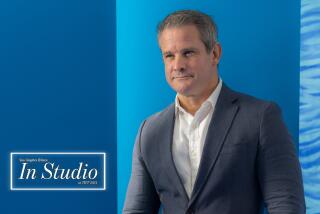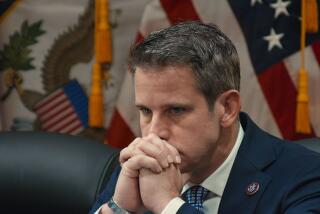An Influence Felt Far and Wide
WASHINGTON — Henry A. Kissinger has been out of government for a quarter of century, yet as a consultant, lecturer and pillar of the U.S. foreign-policy establishment, the former secretary of State remains influential and controversial.
The 79-year-old Nobel laureate, perhaps the best-known diplomat of recent decades, is as he always has been a sought-after source of advice for Republican and Democratic administrations. He lectures, writes influential newspaper columns and heads a consulting firm, Kissinger Associates, with a roster of blue-chip clients.
Yet Kissinger, who was chosen Wednesday to head the independent commission that will investigate last year’s terrorist attacks, also continues to be hounded by critics of his foreign-policy stewardship during the Nixon and Ford administrations. His harshest critics charge that he was a “war criminal.”
Kissinger, a refugee from Nazi Germany, began his career as a Harvard professor and entered government in 1969 as President Nixon’s national security advisor. He eventually served the unusual dual role of national security advisor and secretary of State under both Nixon and President Ford.
He shared the Nobel Peace Prize in 1973 with North Vietnamese diplomat Le Duc Tho for bringing about a cease-fire that led to the Vietnam War’s end.
Since leaving government at the end of the Ford administration in January 1977, Kissinger has written a dozen books, including memoirs and foreign-policy analyses.
His continuing influence was clear in August, when top Republicans were debating the Bush administration’s increasingly aggressive posture toward the regime of Iraqi President Saddam Hussein. Kissinger drew wide notice with an Aug. 12 newspaper column that said an attack against the regime was appropriate, although he urged President Bush to continue diplomatic efforts to try to force inspections of Iraq’s suspected weapons of mass destruction.
Robert F. Ellsworth, a longtime Republican foreign-policy expert and former U.S. ambassador to NATO, said Kissinger’s opinions are regularly weighed when Republican leaders formulate policy. “He’s the institutional memory; he’s the institutional insight,” he said. “They know he’s influential, they know he’s a Republican, and they know he’s trustworthy, and not going to go off into the wild blue yonder.”
Kissinger began his consulting firm, Kissinger Associates, two decades ago.
With its headquarters in New York, the firm “provides strategic advisory and advocacy services” for international clients, according to its promotional literature.
This means that Kissinger and his associates are so-called door openers who can put companies in touch with the officials they know overseas, and they can give them advice on the politics and economics of the countries they have done business with. The firm does not lobby the U.S. government.
Its client list has included such firms as Merck & Co. Inc., the Coca-Cola Co., the Anheuser-Busch Cos. and Revlon Inc.
“Few people would not return Henry’s phone call,” John Muse, of the Hicks, Muse, Tate & Furst Inc. buyout firm, told a British newspaper earlier this year as the firm announced it was retaining Kissinger.
The firm has been criticized for advising clients doing business with foreign countries, such as China and Indonesia, while Kissinger was offering foreign-policy commentaries advocating improved trade relations with these countries.
Kissinger prefers to say little about his business activities. Aides at his offices in New York and Washington declined Wednesday to discuss his business activities and said neither he nor others at the firm would be made available to discuss them.
Kissinger’s critics have focused most intently on his leadership of the U.S. military effort in Indochina, including the secret bombing of Cambodia, and the U.S. role in the 1973 overthrow of leftist Chilean President Salvador Allende by the dictator Augusto Pinochet.
The critics contend Kissinger was too willing to work with corrupt governments to advance what he saw as U.S. interests.
Earlier this year, judges in Argentina, Chile and France said they wanted to question Kissinger about what he knew of human-rights abuses committed during the Pinochet years. When Kissinger visited Cork, Ireland, in February, protesters at University College Cork carried banners denouncing him as the “Milosevic of Manhattan,” in a reference to the brutal former leader of Yugoslavia.
More to Read
Sign up for Essential California
The most important California stories and recommendations in your inbox every morning.
You may occasionally receive promotional content from the Los Angeles Times.











